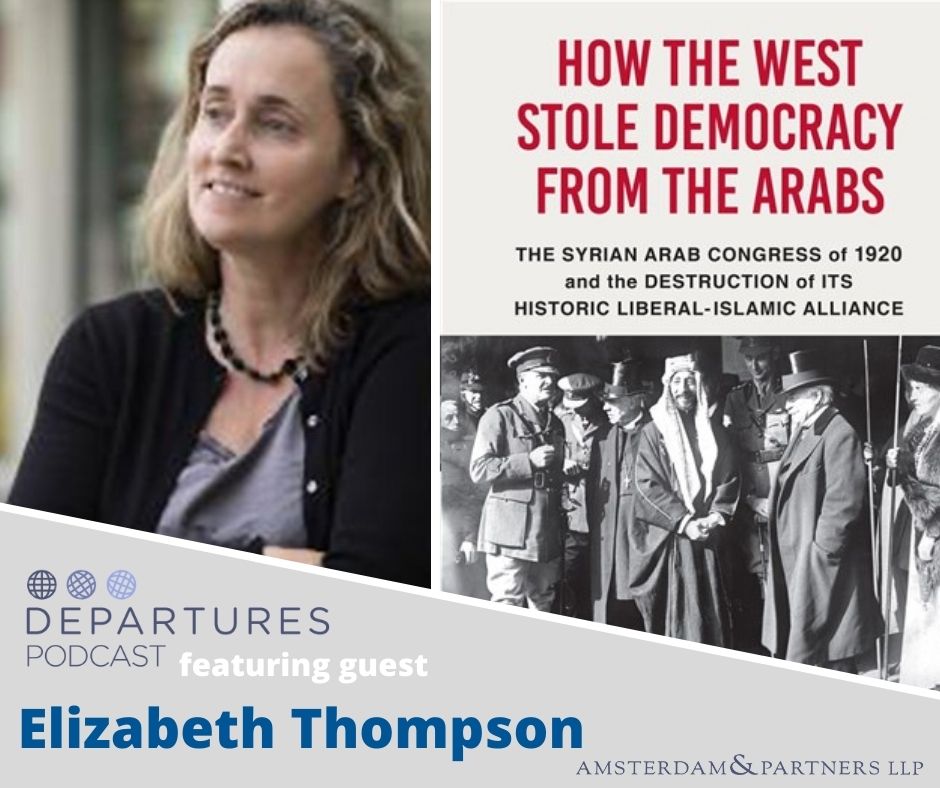Departures Podcast with Elizabeth Thompson

Following the World War I breakup of the Ottoman Empire, Prince Faisal came into Damascus to declare his determination to build a constitutional democracy which would serve as the primary building block of a new sovereign state with guaranteed rights for a pluralistic population. Secular modernizers and Islamic reformers created groundbreaking new alliances which could have served as governance models across the Middle East.
But instead, Syrian democracy appeared to be too threatening to British and French colonial interests in the region. The two Western powers refused to recognize the Damascus government and instead imposed a system of mandates on the pretext that Arabs were not yet ready for self-government. In July 1920, the French invaded and crushed the Syrian state. The story of this period is told in exquisite narrative detail and deeply researched insights by Dr. Elizabeth Thompson, a professor of history at American University and the author of the new book, “How the West Stole Democracy from the Arabs: The Syrian Arab Congress of 1920 and the Destruction of its Historic Liberal-Islamic Alliance.”
In this conversation with Robert Amsterdam, Dr. Thompson speaks about the unknown twists and turns of King Faisal’s rise to power and rapid downfall, and why we continue to see the ramifications of this anti-democratic intervention by the West that is often ignored in many retellings of the Arab world’s experience with democracy and state building.











